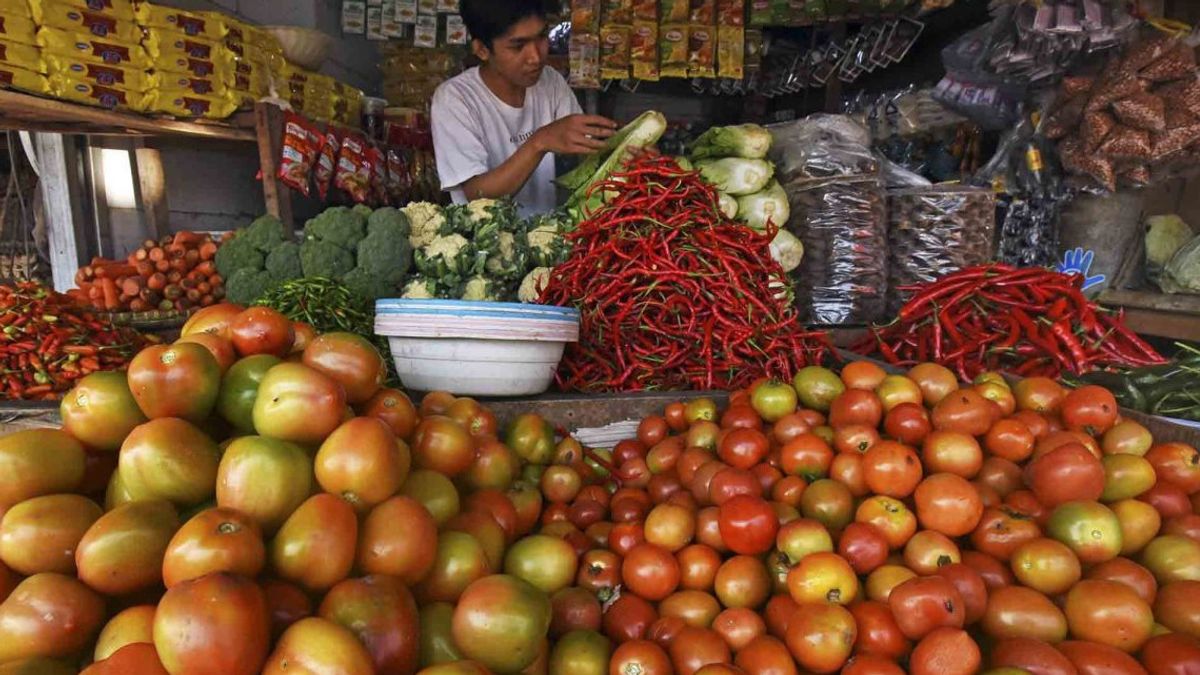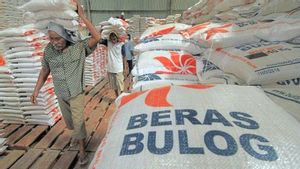JAKARTA - Economist of the Institute for Economic and Community Research, Faculty of Economics and Business, University of Indonesia (LPEM FEB UI) Teuku Riefky said inflation would continue, mainly influenced by the increase in demand in Ramadan and ahead of Eid al-Fitr.
"Inflation is still likely to continue apart from the fact that food prices are indeed in March. This inflation is also influenced by the increase in demand, so demand drivers are also affected," said Riefky, quoted from Antara, Tuesday, March 26. He said there are two factors that affect the increase in inflation going forward, namely supply and demand. In terms of supply, the price of rice food and various other commodities is still quite high. On the other hand, demand pressure (demand) is also quite high. These two factors encourage inflation to continue to rise. According to him, if in terms of demand, actually inflation is being demand-driven is quite good, meaning that the condition triggers an increase in economic activity. But in terms of supply, the increase in prices of basic commodities can erode people's purchasing power. "So these two factors need to be considered in the estimation of inflation figures going forward," he said. Furthermore, he said the government has made various efforts needed to suppress inflation, including importing and maintaining the adequacy of food stocks. However, indeed, the impact of El Nino is still quite large, and in the future it needs to be re-intensified importing products that are needed to keep food prices under control. Furthermore, in order to keep inflation The Consumer Price Index (IHK) 2024 in order to remain in the target range 2.5 plus minus one percent, the government and Bank Indonesia (BI) will take seven strategic steps to control inflation in 2024, namely implementing monetary and fiscal policies that are consistent with efforts to support inflation control and encourage economic growth. The next strategic step is to control volatile food group inflation so that it can be controlled below 5 percent, with a focus on rice commodities, various chilies, and various onions.
SEE ALSO:
The government also agreed to maintain supply availability and smooth food distribution to mitigate short-term risks, including anticipating harvest season shifts and increasing demand ahead of National Religious Holidays. Furthermore, the government will also strengthen food security through efforts to increase food productivity and downstream; and strengthen the availability of food supply data to support the formulation of inflation control policies. In addition, the strategic efforts agreed also to strengthen the synergy of the Central and Regional Inflation Control Team, among others through GNPIP; as well as strengthen communication to maintain inflation expectations.
The English, Chinese, Japanese, Arabic, and French versions are automatically generated by the AI. So there may still be inaccuracies in translating, please always see Indonesian as our main language. (system supported by DigitalSiber.id)













